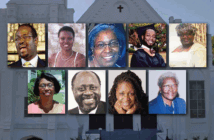Ann Michel offers a variety of suggestions to help churches improve different kinds of communication by prioritizing messages.
Sometimes church members are poorly informed because they receive too much information — not too little. A barrage of uncoordinated messages can be confusing and overwhelming, causing people to tune out. Churches can improve their communication by prioritizing messages.
Having clarity about the church’s ultimate vision and mission is one fundamental element in mastering the message. Without this, all the best communication techniques and technology will fall short. A clearly articulated mission statement, motto or slogan, and goals are themselves valuable communication tools — and they help prioritize, frame, and define other messages.
Creating a communication calendar around important congregational and liturgical events is another way to focus messages. For each period on the calendar ask, “What is the one thing every church member needs to know?” This “headline” should be on the front page of the newsletter, on the website’s homepage, and announced in worship. Less timely information, or that relevant only to subgroups, can be disseminated through other means — as long as everyone knows where to find it. Maintaining a comprehensive and up-to-date activity calendar is helpful in this regard, as is consistent categorization of newsletter and website material.
Worship announcements, both printed and verbal, should be brief and to the point. Websites or newsletters are better places for longer or less time-sensitive material, although brevity and browse-ability are important in these media as well.
Clearly stated communication procedures will also help maintain focus. Establishing a committee to oversee communication can be helpful, but a point-person for dealing with day-to-day issues is also needed. Setting standards for screening and reviewing material and maintaining regular deadlines will improve quality and make it easier to emphasize priority matters.
Finally, an annual communication audit can gauge the effectiveness of your strategies. Each different communication vehicle should be evaluated by asking “What is its audience?”, “What is its mission?”, and “Is it effective?” Ask both members and persons beyond the church for their input when making these evaluations.







